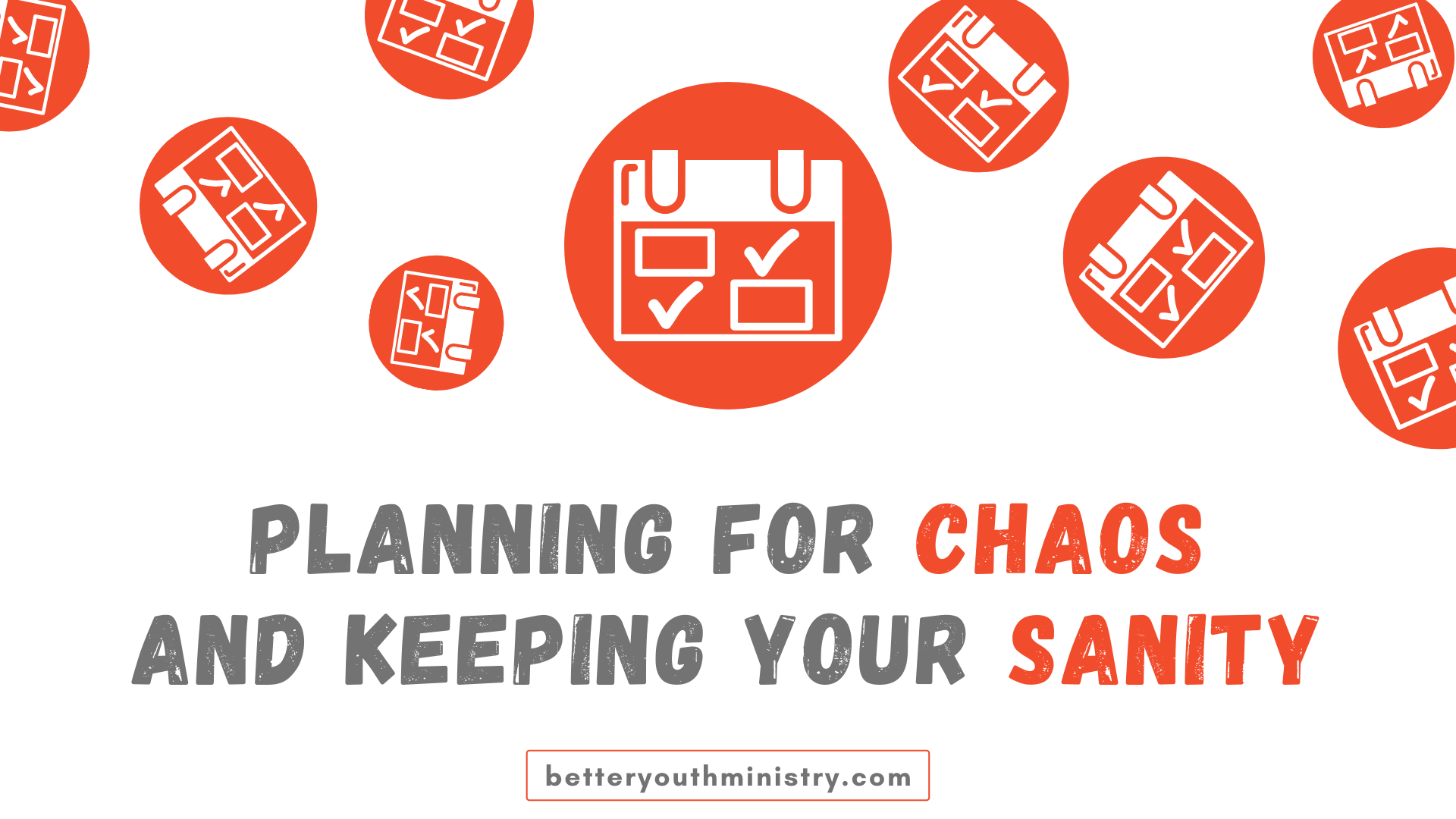A few years ago, fire departments across the United States responded to more than 36 million calls and put out over 1 million fires (nfpa.org). But that’s what they signed up for. That’s why they exist.
When a fireman goes to work, he knows that he’ll spend most of his shift being called upon to put out fires.
But you’re not a firefighter. You’re a youth pastor.
And yet, several times every week you find yourself putting out fires (figuratively speaking, of course). Sometimes those fires happen in church members’ lives. Other times they happen in your own family. Either way, they’re unexpected and typically inconvenient.
The case of the forgotten bag
My daughter looked at me with panic in her eyes. I was dropping my kids off at school and she’d taken one step out of the car.
“What’s wrong?” I asked.
“I forgot my cheerleading bag,” she said.
She’s a cheerleader at the school and there was a football game that afternoon. She had to have that bag because her uniform was in that bag.
We live almost 30 minutes away from the school, so I grimaced, knowing that I was about to lose the next hour and a half by driving home to get the bag, then back to the school and back home again. I hadn’t planned on that.
I’m sure you know the feeling.
What if there was a way to plan for the chaos that inevitably interrupts our day?
Well, there is.
Even though I hadn’t planned on this exact interruption, my entire day wasn’t thrown off by it. That’s not because I have nothing to do; I have several projects that I working on right now. The secret is a productivity trick that I learned from Sean D’Souza called Chaos Planning.
Sean is an internet marketer who takes a full three months off every year and still produces more content, courses, and workshops than many other people in the business who work all year long without any vacation.
What is Chaos Planning?
Chaos Planning begins with an acknowledgment that chaos happens. Like it or not, chaos will force its way into your life. It seems to happen more when you’re a parent, but no one is immune to chaos.
Things break, emergencies happen, and issues need to be dealt with. These are the fires that show up and need to be put out. Sometimes, though, the chaos comes from something good, like when you find out that old friend is in town and he asks if you can meet up for a cup of coffee. Whatever the case, good or bad, these things bring chaos into your calendar. But when you plan for chaos, you keep it from derailing your day.
How can you plan for chaos?
Planning for chaos seems like a contradiction. By definition, isn’t chaos random? Well, yes. But here’s the secret: you plan for chaos by structuring your day to include time for unstructured interruptions, unexpected opportunities, or unfinished projects.
What does that mean?
On your schedule, you should include two hours per day of unstructured time. Don’t schedule appointments with anyone ahead of time for that block of time. Don’t commit to doing anything in particular during that block of time. Leave it open. Or, more specifically, schedule that time to work on the things that the chaos kept you from working on at a different time.
Scheduling for chaos is like that drawer in your kitchen where you keep random, miscellaneous things that you don’t know where else to put. It’s a hodge-podge of stuff that you think you’ll need at some point, but you don’t exactly want it to be left out on the counter in the meantime.
That drawer is a catch-all space. And that’s exactly what your block of chaos time is. It’s there for you in case your best-laid plans get turned upside down earlier in the day.
What if there’s no chaos?
Sometimes you’ll have ideal days that are chaos-free. When those days come, you should be happy. You’ll have two extra hours on your calendar to work at a leisurely, relaxed pace.
You might read a book that you’ve been meaning to read.
You might organize the files on your computer.
You might spend a few extra minutes thinking about how you can make your next sermon more memorable or the next program more engaging.
You might spend some time praying for your students.
You might call another youth pastor in town to encourage them.
You might plan a date night with your spouse.
You might go for a walk and collect your thoughts.
The possibilities are endless, but the important thing is that you won’t be stressed. It’s amazing how well we can work when we aren’t stressed.
Your Move
How do you deal with chaos when it shows up in your day? I would encourage you to plan for chaos instead of being frustrated by it. Accept the fact that interruptions will happen. Acknowledge that what you’re working on might take longer than you thought it would. Don’t let those things get you stressed out and frustrated. Instead, plan for those things by building space into your schedule ahead of time.
This way of approaching your day is a healthy antidote to the frantic way so many people presently operate. When you pack your schedule with back-to-back meetings and tasks, you’re setting yourself up for more stress because life doesn’t actually work that way.
Life is full of chaos, and life in ministry is no exception. But when you plan for chaos, it won’t ruin your day when it shows up.
Suggested Resource:
Latest posts by Trevor Hamaker (see all)
- 7 Ways to Deal with Disruptive Students - December 18, 2024
- Fighting Frustration by Shifting Your Focus - December 18, 2024
- What is the Most Important Job of a Small Group Leader? - December 18, 2024
Did You Like This Post?
Sign up to get updates sent to your inbox each week!
You're in! Want more ideas and support for your ministry? Check out the BYM Community!
http://bit.ly/bymcommunity


